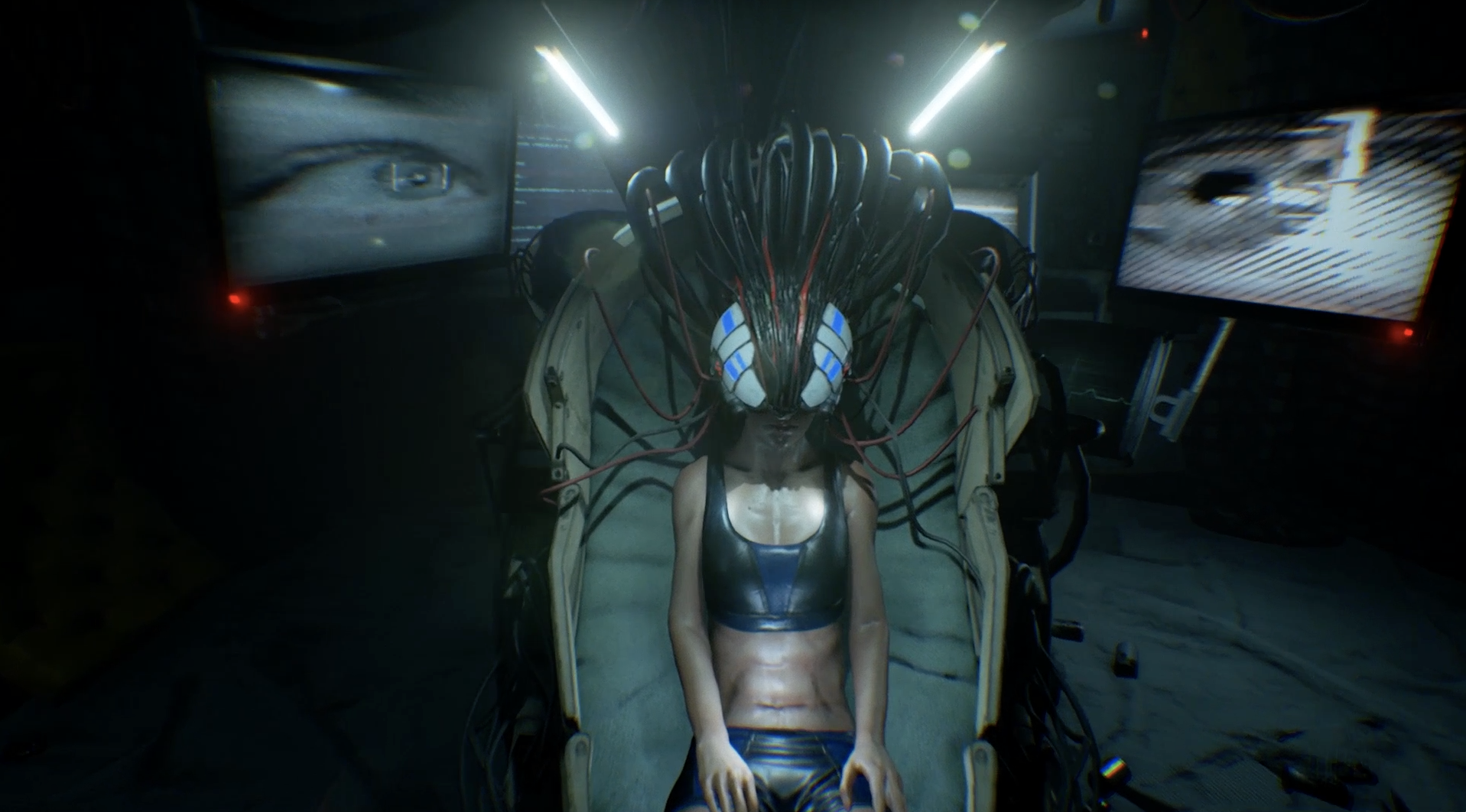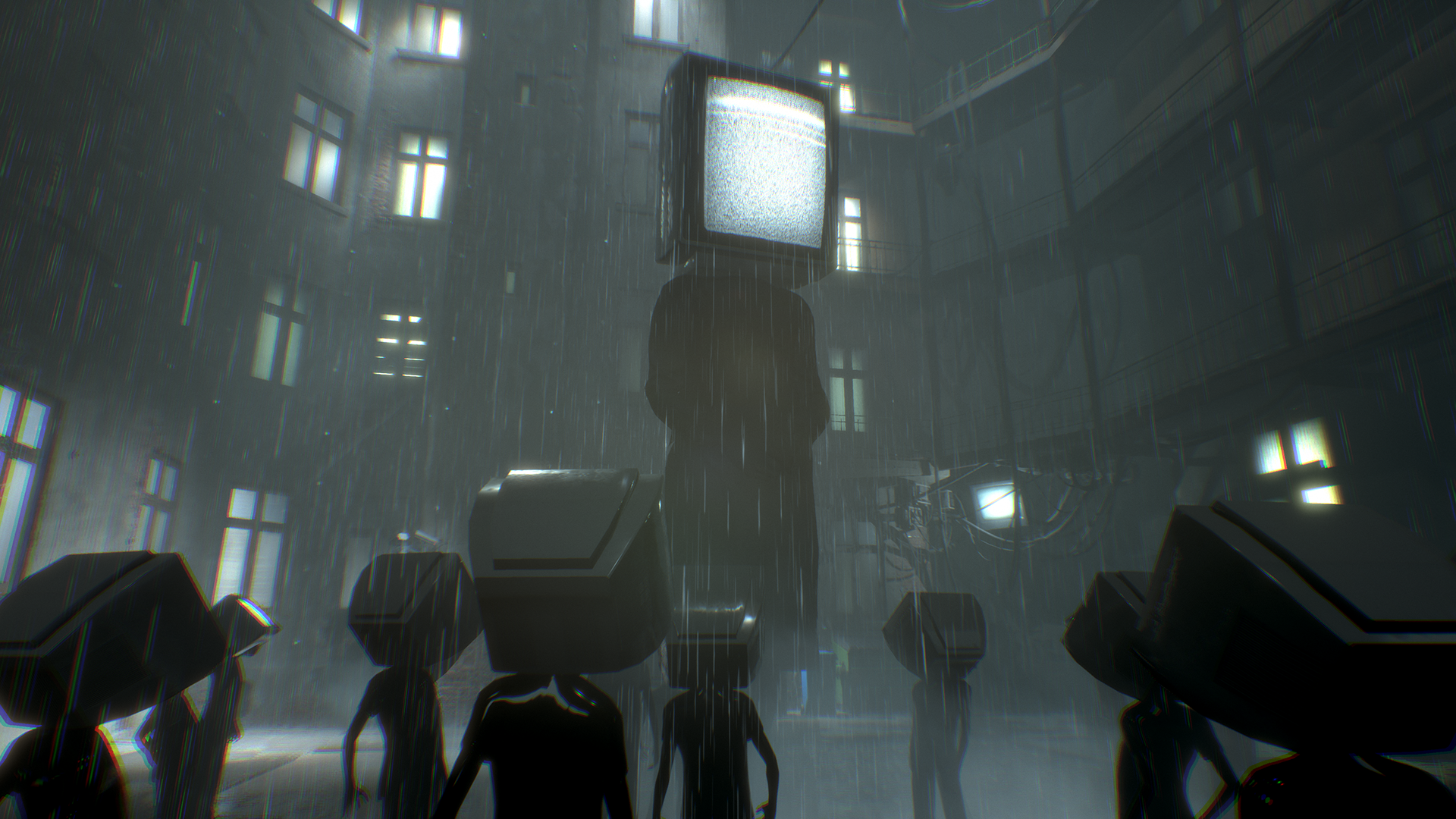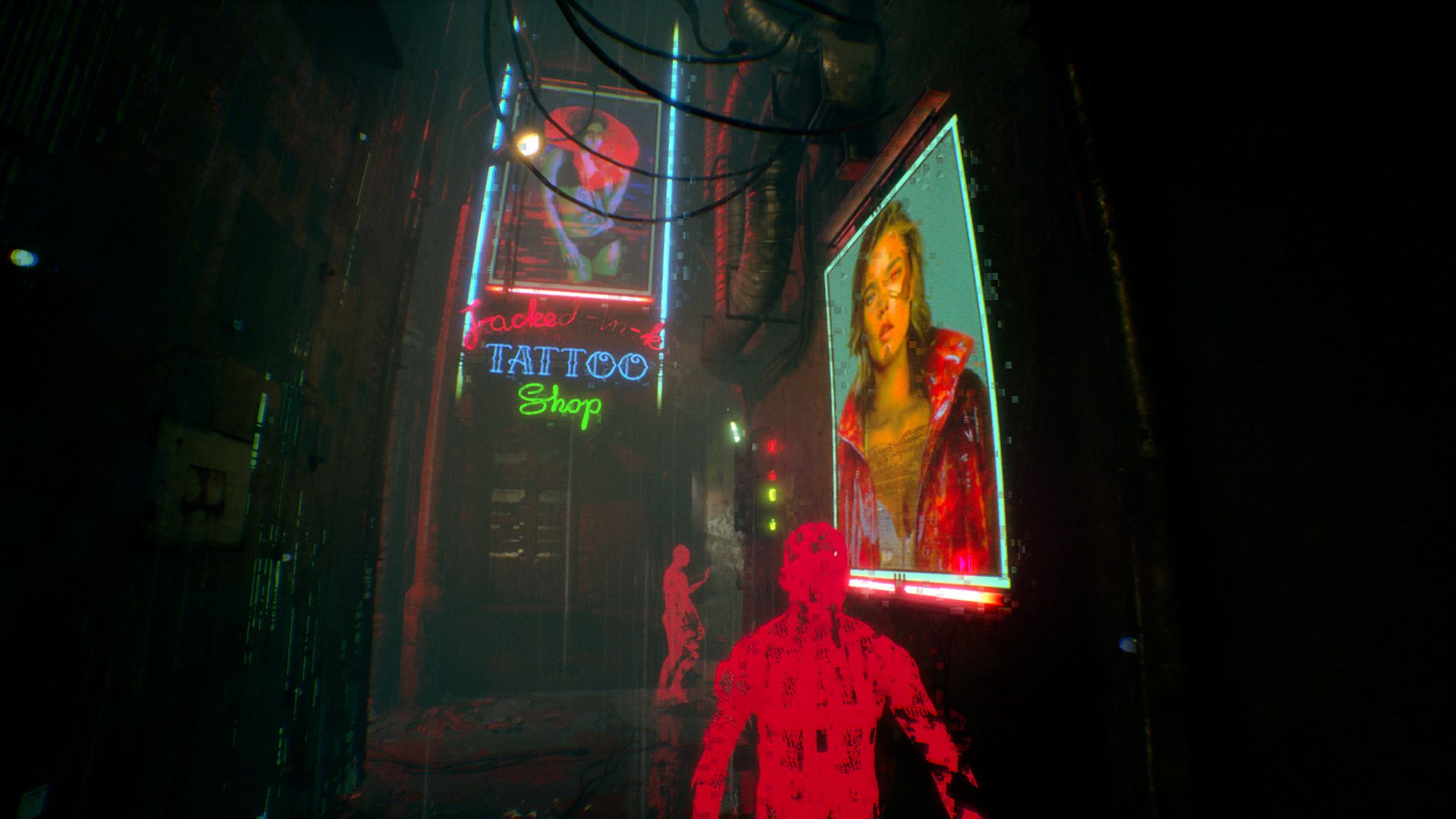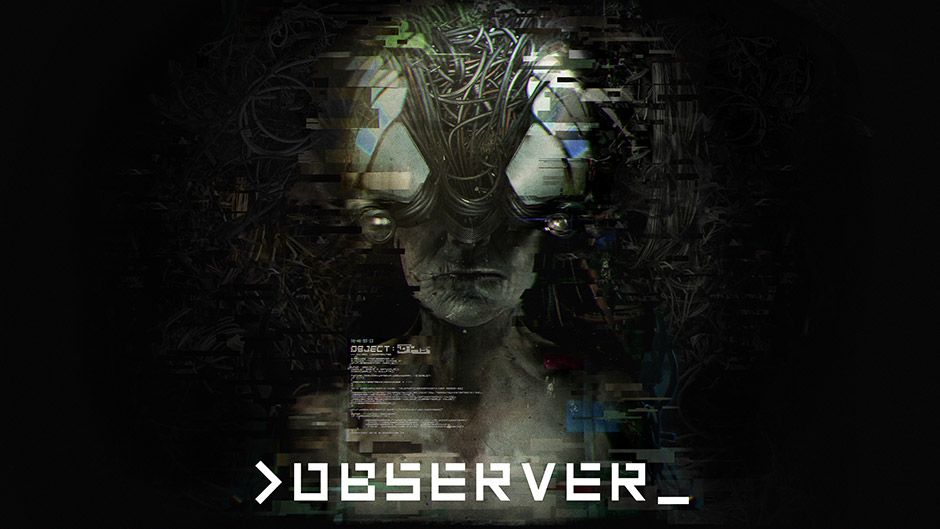Coming off the back of Blade Runner 2049 -- and with Halloween looming -- it sure would be awesome to have a terrific cyberpunk horror game to play right now. In steps Observer.
Like Bloober Team's previous game -- Layers of Fear -- Observer fits firmly in the psychological horror genre: a title that traded Layers of Fear's 19th century Victorian-era mansion setting for a dystopian, cyberpunk future. It is a dark, distressing, and daringly abstract final product that is a worthy follow-up to Layers of Fear, and further cements Bloober Team as one of emerging linchpins of the horror genre.
Recently I chatted with Bloober Team about Observer. Specifically some of the abstract, preternatural places it takes the player, as well as what lies ahead for the Polish studio and some of the unique approaches it brings to a genre timeworn with formulaic structure.
Tyler Fischer: Horror has been done so many times -- the formula already captured; when you created Observer, how did the team approach not only trying to create a unique visual style and narrative within the compounds of the horror genre, but build your take on the horror experience as a whole?
Bloober Team: We have a clear vision of how we want to develop our horror games – we focus on the atmosphere and experience, less on action and stick skills or dexterity. This obviously cuts down on straightforward, in-your-face monster jump scares. We have to be very creative with environmental production, lighting, and audio cues.
>observer_ was built with desperation in mind – the hardships the people of 2084 Krakow endure every day. The horror is derived from the tension of these tenants, their problems, their lost hopes and sense of being powerless in a controlled country. They are afraid they cannot change anything, and are terrified that if they even dreamed of rebellion, Chiron would hack their minds and find them out. Mind hacking was designed to be a psychedelic rollercoaster ride where anything can happen, as well as a representation of a technology that can literally reveal your greatest secrets.
Of course, the game still preserves many classic horror tropes, like an antagonist who hunts you, and classic jump scares, though they are scarce. With >observer_ we were trying to create a new sense of dread that is emotionally terrifying, unlike a zombie eating your brain, which is mostly gore.
[pullquote]"With >observer_ we were trying to create a new sense of dread that is emotionally terrifying."[/pullquote]

T: Playing through the game, the lack of cheap jump scares and standard horror game scare tactics was refreshing. The horror was most of the time hidden, but not out of mind. Why take this route, especially when the jump scare, ambushes, and other strategies have proven to be successful for many, many years (and is particularly useful for Let's Play content and streaming)?
BT: This is connected to a different approach to the horror genre we have. Gaming for a long time has been overcome by horror games focused on action, reflexes, running and gunning, and we wanted to give the players a choice to try something different, a new subgenre that we are calling Hidden Horror.
There are only two main principles to Hidden Horror: the subject and catharsis 2.0. The former defines the theme of the game, its issues – they are often philosophical and psychological in nature and define every aspect of the game. Catharsis 2.0 is meant to not only relieve people from their fears but also make them ponder, to seriously question and examine their own fears. Why does this scare me? It’s an individual experience.
[pullquote]"Gaming for a long time has been overcome by horror games focused on action, reflexes, running and gunning, and we wanted to give the players a choice to try something different, a new subgenre that we’re calling Hidden Horror."[/pullquote]
If you look at the horror film industry, you can see a wide range of subgenres, from gore and slashers to thrillers and psychological horror. Gaming has been lacking in terms of the variety of experiences, and we want to fill that void with deep psychological horror.

T: When you’re creating a psychological horror game there is so much freedom to go for the abstract and tackle more prominent themes even. Observer dips into the abstract. It’s utter psychological chaos at times and often so preternatural that I’m still wondering if the minds behind this game were even human. How do you balance the abstract factor? Is there ever a concern amongst the team that perhaps we are plunging too deep into the abstract and it won’t come off for someone further removed from the project?
BT: The level of abstract is fine tailored from the very concept. The audio visual aspects can be as abstract as we want or need, but the message behind it should be clear. As long as the player is able to understand the weight of the situation and the problem connected to it than everything works just as intended. Some messages are more hidden and need more world knowledge or even a very open mind to understand them, but that’s also intentional. We want people to discuss the meaning of what is shown in our games, to think and ponder about the issues presented. Theorizing is a way to discover what one really thinks and in the end what kind of a person he or she is – this kind of player behavior is what we always intended to achieve.
[pullquote]"We want people to discuss the meaning of what is shown in our games, to think and ponder about the issues presented."[/pullquote]
T: This is now the second horror title Bloober Team has shipped, has the team become at all desensitized to the scares of a horror game?
BT: Of course not! Scares, if executed properly, will always be frightening. I’d say that we’re more aware of when to expect a scare and that might spoil a lot the factor itself. Furthermore, there’s at least a few stories running around our office that someone changed a little bit of the scare factor we had implemented and it was enough to scare a lot of people who’ve playing the game on a daily basis. It’s all about what you do and do not expect.

T: Piggy-backing on that question, did the experience help in creating the horror specific aspects of Observer? Or is it hard to shake that experience and create something that feels entirely new without going back to the well too much?
BT: I don’t think there is a simple answer to this question. We try to work as much as we can outside the box, creating scare factors that don’t seem obvious or trying completely new things, however, it’s always a trial and error process. Sometimes the easiest answers are best and going back to proven methods becomes the ideal way to proceed.
T: Last time we spoke I brought up how VR seemed liked such a great fit for the game. Playing it, I only feel stronger about that conviction. Any real chance we might get to tour that excellent cyberpunk world in virtual reality?
BT: To fully realize the vision we had for >observer_ we needed to implement a lot of visual effects that are pretty heavy on your senses. To make a safe-to-play version of the game would require redesigning the game almost completely, which makes a VR version rather unlikely to happen in the near future. However, VR is always somewhere at the back of our heads and we’re still fiddling with the technology, so who knows, maybe someday it will happen.

T: Speaking of VR, how viable do you think it is a platform for psychological horror? Is an experience built from the ground-up for VR something Bloober is interested in pursuing?
BT: VR is definitely enticing and psychological horror seems almost like a perfect fit for the hardware, so obviously we are interested in the technology. Although the only VR game we have developed is Layers of Fear: Solitude, but that doesn’t mean that in the future we won’t pursuit this trend a little bit stronger.
T: Should all the Nintendo Switch owners out there expect to play as Dan anytime soon (or ever)?
BT: We have no plans at the moment to bring >observer_ to Nintendo Switch. This of course might change at some point in the future [smiles].
T: The team has now successfully shipped two well-received psychological horror games. Is it safe to assume your next game will tackle the same genre? Or is there an itch to develop within another genre?
BT: We are devoted to psychological horror games. This is our forte and we want to be the best in the world in it. Hopefully the games we develop only prove that we’re doing what we should and we’re good at it!
[pullquote]"If you look at the horror film industry you can see a wide range of subgenres, from gore and slashers to thrillers and psychological horror. Gaming has been lacking in terms of the variety of experiences, and we want to fill that void with deep psychological horror."[/pullquote]
Observer is currently available for PS4, Xbox One, and PC.

